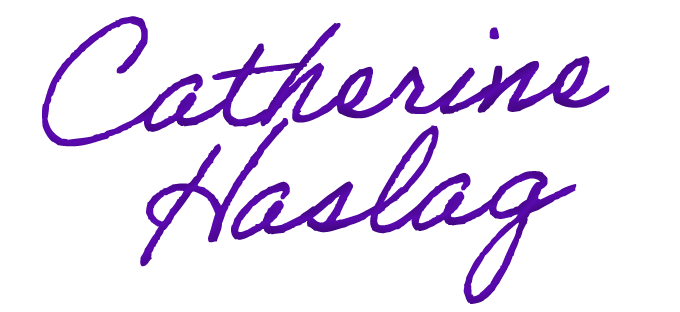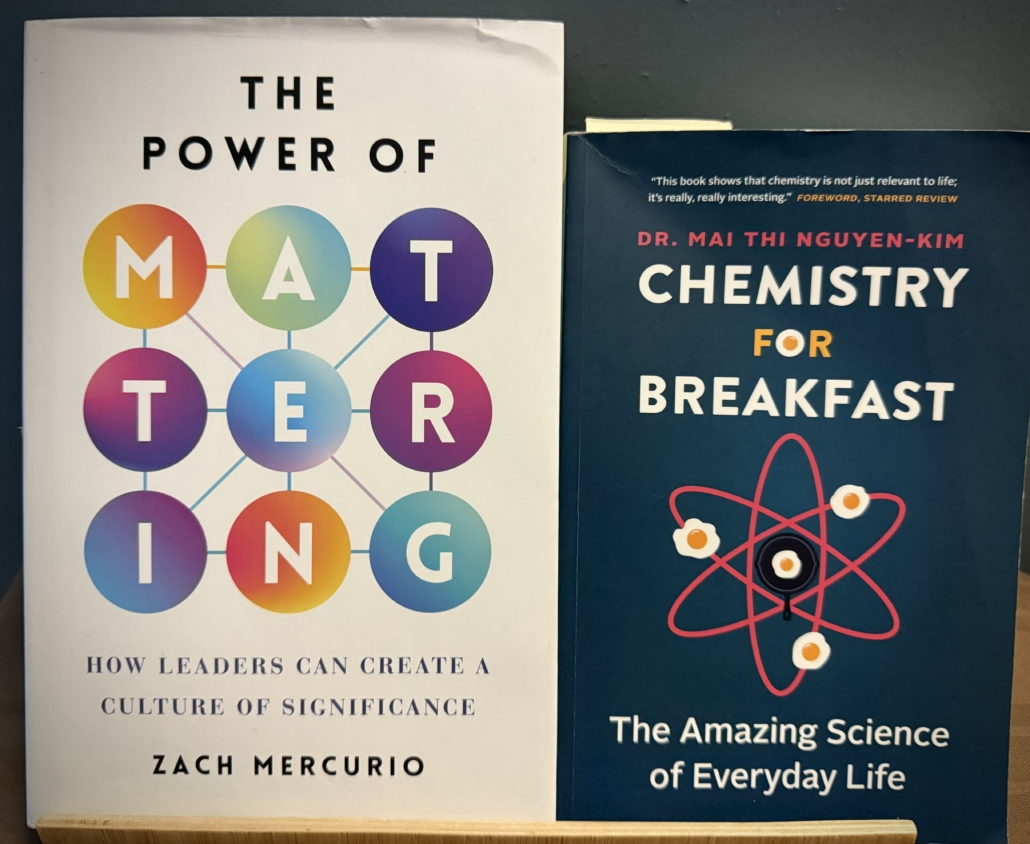Books Read
Chemistry for Breakfast: The Amazing Science of Everyday Life by Mai Thi Mguyen-Kim
This was the perfect book to begin my sabbatical. Mguyen-Kim creatively walks the reader through the science she encounters during her day. From the norepinephrine and dopamine our brain releases to wake us in the morning to the chemistry involved in preparing dinner, this book provides an easy-to-understand overview of the concepts a student would encounter in most introductory chemistry classes. As I read the book, I noted which chemical topics were discussed in each chapter. If an instructor were looking for an alternative way to teach an introductory chemistry class, this would be a wonderful book to use. Mguyen-Kim does a phenomenal job explaining the scientific method, gas laws, acid-base chemistry, chemical bonding, structure, chemical reactions, organic and biochemistry, water chemistry, and reaction rates. This book discusses scientific publications and research methods extensively in the first few chapters. In later chapters, it outlines how to be an informed consumer. In the age of misinformation and disinformation, it is increasingly important for science classes to include discussion of reliable sources, scientific publications, and proper use of the scientific method. Mguyen-Kim provides examples and easy avenues to tie current topics in science into a class. I recommend this book for any reader who wants to know more about how chemistry impacts every second of their day and any educator who wants to approach chemistry from a new perspective.
The Power of Mattering: How Leaders Can Create a Culture of Significance by Zach Mercurio
I have participated in the local Leadership Reads book group since 2020. The Power of Mattering: How Leaders Can Create a Culture of Significance by Zach Mercurio was the first read for the 2025-26 season. Mercurio’s thesis is that humans have a fundamental need for significance, which drives their behavior. When a leader takes the time to notice those around them beyond superficial awareness, affirms a person’s ability to make a difference, and shows people they are needed and essential, they create an environment where people feel they matter. The feeling of mattering (significance) improves a person’s well-being and encourages positive performance.
This book encouraged me to review my interactions with students and consider how I can improve them. An actionable takeaway I gleaned from this book is to keep notes on my students to help me track who needs additional support and have more meaningful student interactions. I typically have between 90 and 150 students each semester. It can be hard to track who is experiencing challenges at home, who needs additional math support with problem-solving, or who has a special skill I can encourage and develop. My hope is that this practice will help me notice my students on a deeper level, affirm their ability and worth, and communicate how their skills and knowledge are needed in this world. These actions are the tripod that creates a feeling of mattering as outlined in Mercurio’s book.
Other Learning
Creating HTML files in Brightspace using Templates
In June, I completed a NED workshop titled Creating Accessible Course Documents. I learned how to create documents that are screen-reader accessible using MS Word and HTML. This NED webinar built on the skills I acquired in June. It focused on how to use the HTML templates already present in Brightspace to create interactive, uniform, and accessible documents for students. This information will be helpful as I make ongoing improvements to my courses during my sabbatical and beyond.
Travel through the Dakotas
One of the great benefits of taking a sabbatical is the option to travel. During my last sabbatical during the 2018-19 academic year, I took a week to solo bike the Paul Bunyan Trail. This approximately 120-mile trail stretches from Crow Wing State Park to Lake Bemidji State Park in northern Minnesota. I packed my tent and all supplies (37lbs of gear) on my bike and spent three days biking the trail and exploring the towns along it. I ended the trip with one day and two nights camping at Lake Bemidji State Park before returning to Austin. Starting my last sabbatical this way allowed me to explore the world, test my own limits, and discover what I am capable of with some intentional planning and preparation. It also gave me space to just be in the world, an opportunity that is hard to make space for in modern times. Seven years later, I am still learning life lessons from this trip.
This year, I chose to begin my sabbatical with a national parks trip through the Dakotas. I had never visited North Dakota, and I have a National Park Pass I wanted to utilize more, so I planned an eight-day, seven-night camping trip to visit Pipestone National Monument, Badlands National Park, Crazy Horse Memorial, Theodore Roosevelt National Park (both units), and Knife River Indian Village National Historic Site. I camped every night but the last one. I saw incredible rock formations, absorbed majestic views no camera could hope to capture, and came closer to bison and prairie dogs than I ever thought I would. I hiked trails and met people from nearly all 50 states, Quebec, and British Columbia during my journey. I also learned more about the incredible indigenous civilizations that once thrived in these regions. Indigenous groups still mine the quarries for stone at Pipestone. Indigenous artisans demonstrated how they turned the red stone into beautiful pipes used for religious ceremonies. As I stood along the Knife River, I could imagine the thriving community that once occupied mound homes in this area. I loved the time in nature, the opportunity to learn more about the history of this nation, and the chance to be and contemplate the sabbatical journey ahead.
Videos I shot at Theordore Roosevelt National Park of the Prairie Dogs (above) and Bison I encountered while hiking along th eLower Paddock Creek Trail (below).
References
National Parks Service. (2024). Pipestone National Monument. https://www.nps.gov/pipe/index.htm
Nguyen-Kim, M. T. (2021). Chemistry for breakfast: the amazing science of everyday life. Greystone Books.
Mercurio, Z. (2025). The Power of Mattering: How Leaders Can Create a Culture of Significance. Harvard Business Review Press.


